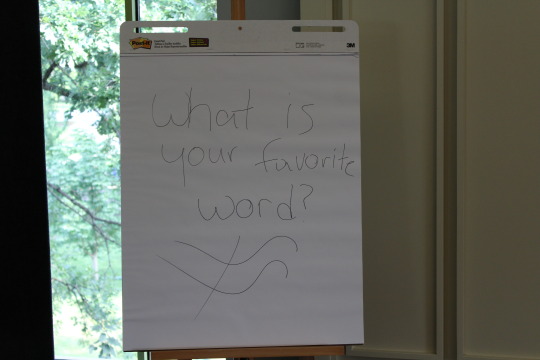
The word of the day for our young writers? Words. Whether
big or small, foreign or familiar, words provided the foundation for Day 2 of the Young Writers’ Workshop. And rightfully so: We need words to tell stories, after all, and as our young writers became acquainted with new ways to tell stories during the first day of workshop, it only makes sense they discover new words and ways to arrange them to tell stories of their own.
As they did yesterday, the young writers started by answering a warm-up question (What is your favorite word?) that set the tone for the day and stretched their creative muscles:
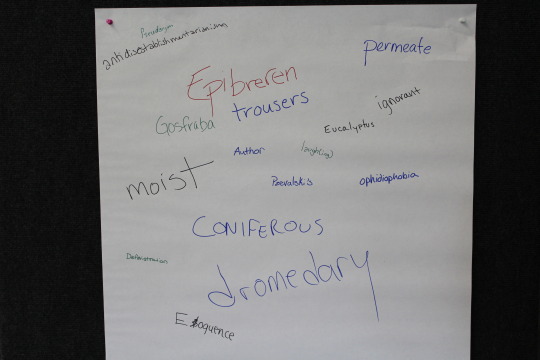
Try using these in a sentence.
Once all the writers had arrived and were settled in their seats, each was given a slip of paper with the following “found poem” by William Carlos Williams:
This is Just to Say
I have eaten
the plums
that were in
the icebox
and which
you were probably
saving
for breakfast
Forgive me
they were delicious
so sweet
and so cold
–William
Carlos Williams
However, none of the writers knew this was a famous poem, and this is what the words looked like on their slips of paper:
I have eaten the plums that were in
the icebox and which you were probably saving for breakfast forgive me they
were delicious so sweet and so cold
The writers were challenged to reorganize this “found” note into traditional poem form: breaking the note down into stanzas, changing the order of the words, and creating line breaks where they thought worked best. Though these words may not have belonged to the writers initially, they now had the power to craft them into something new.
With the Williams poem easing them into the idea of found poetry, the writers launched into their next activity: Creating their own found poetry. Amidst a pile of old newspapers, aged etiquette books, and commencement programs lay the words our writers had to play with. They simply needed to find them.
And find them they did.
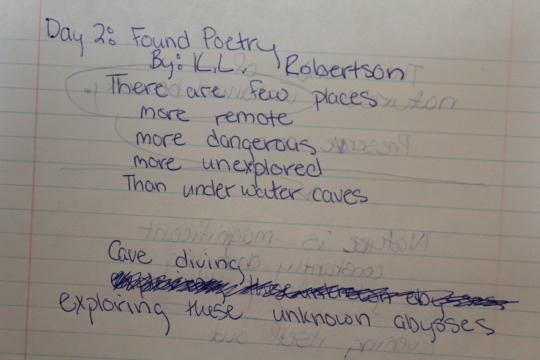
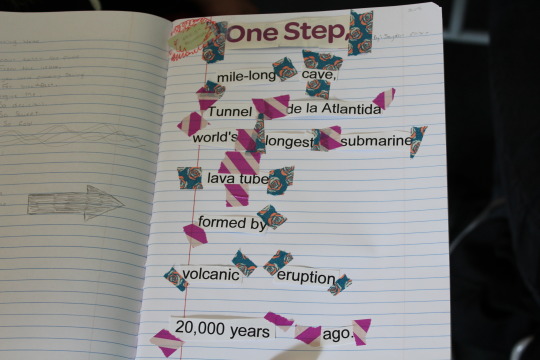

Many of the young writers prefaced the reading of their poems with a familiar refrain: “Poetry’s not my strong suit, just so you know.” But as they spoke the words newly pasted into their notebooks, you could see the looks of awe from peers and instructors alike. Not only did the writers find words of all shapes, colors, and sizes to write their poems, they “found” that they were better poets than they gave themselves credit for.
After the found poetry project, the writers were introduced to “emoji poetry”—using emoticons that most associate with text messaging and translating them into poetry. These translations could be literal, or figurative; the emoticons now belonged to them, the words that came with them were all their own. Our writers had a blast with this activity, and it showed in their work:
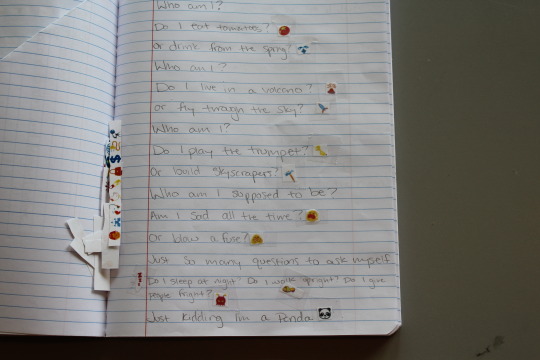
“Just kidding, I’m a panda!”
For the second half of the day, the writers were visited by Richard Pitts*, a storyteller based here in Manhattan and the director of the Wonder Workshop Children’s Museum. Richard’s presentation was grounded in storytelling, utilizing both words and physical actions to capture the audience’s attention. Each of his stories touched on ideas or lessons that have universal appeal: The first story focused on an exhibit featuring a display of traditionally-pierced Africans labeled as “savages,” and sparked a discussion among the writers of biases in today’s culture and media.

“In order for your mind to grow, you have to read everything.” –Richard Pitts
Richard’s second story was an anecdote about his younger self calming his terror of a ghost in his aunt’s basement that served as a parable for confronting any fears. His third and final tale was the “Molly Mouse” story, a parable populated by animals of the jungle about being able to forgive and forget, and to be, in Richard’s words, “the people we’d like to meet.”
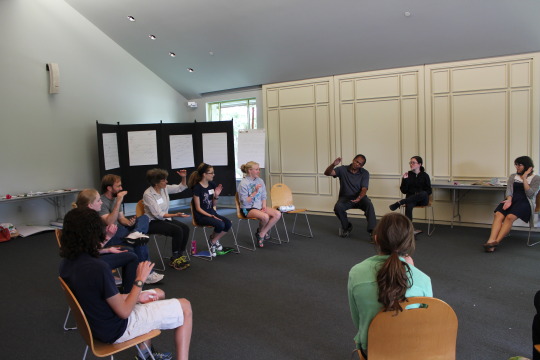
“Can all of you tell your story?” –Richard Pitts
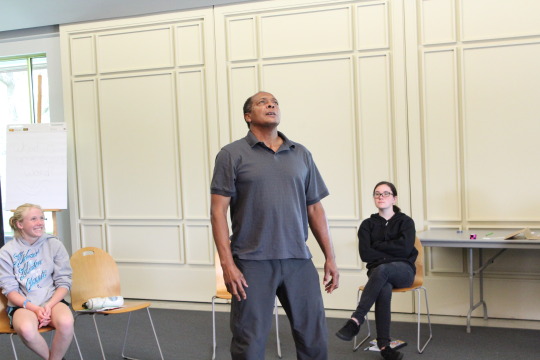
“Everywhere I look, there are storytellers.”
The writers were enamored with Richard’s method of storytelling. Everyone smiled as he changed voices and body posture; you could tell that some even had the desire to get up and join him. That desire came to fruition when the writers were given their next task: Taking what they’d observed from Richard and how he made his own stories effective and memorable, the writers were asked to think of a story they wished to tell in front of their peers.
With just a few minutes to find the right words, a couple brave volunteers shared their stories with the circle. The stories shared were vivid with specific details, wrought with both tragedy and humor, and told with an honesty and maturity that captivated the audience. I can only speak for myself here, but with a few of the stories, I found my eyes blurring with tears; with others, I smiled so broadly I could feel all my teeth showing. And I never smile with all my teeth.

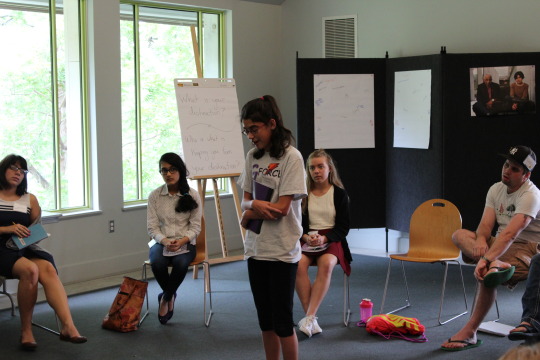
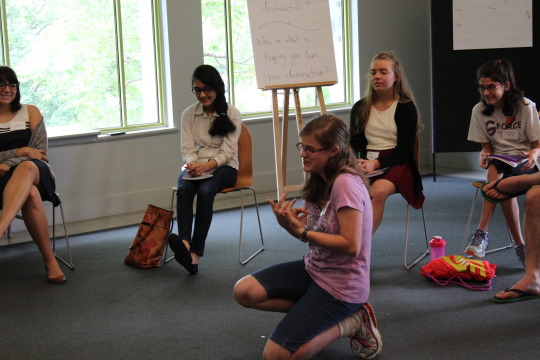
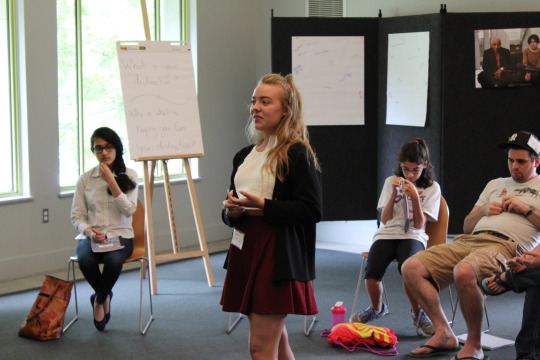
Our young writers telling their stories.
These excellent examples of storytelling once again show what a way with words these young writers already have. As another day of the Workshop came to a close, it was clear that today’s wordy activities hadn’t left them speechless.
~ Dustin Vann, Program Assistant
*For more information on Richard Pitts, visit the Wonder Workshop website: http://www.wonderworkshop.org/
Bonus Pictures of the Day:
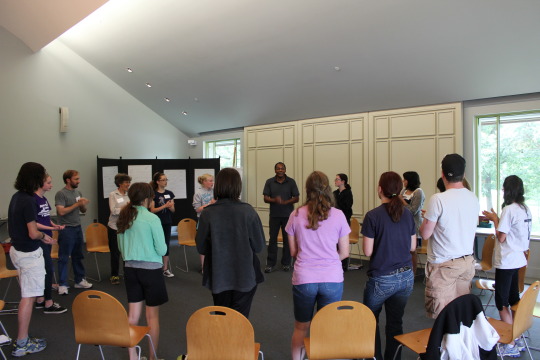
Singing “This Little Light of Mine” with Richard Pitts.
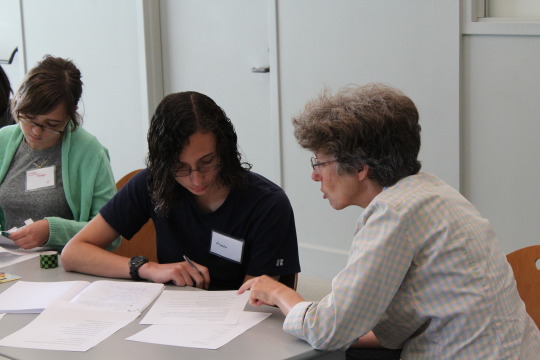
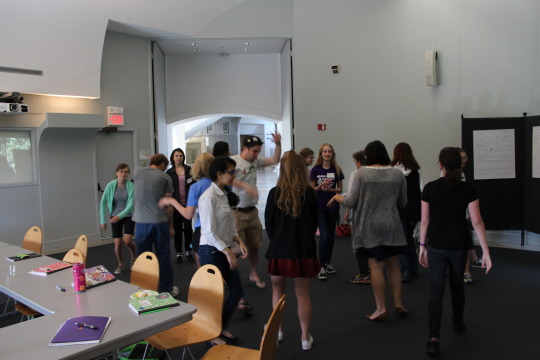
Do the Monster Mash!
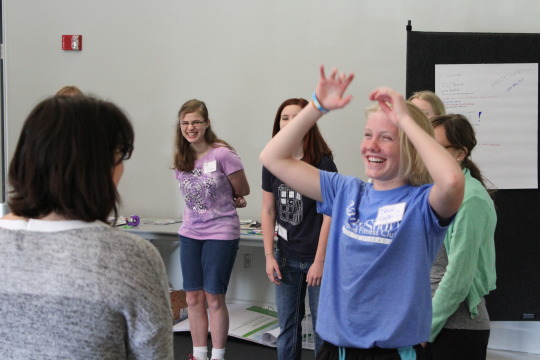
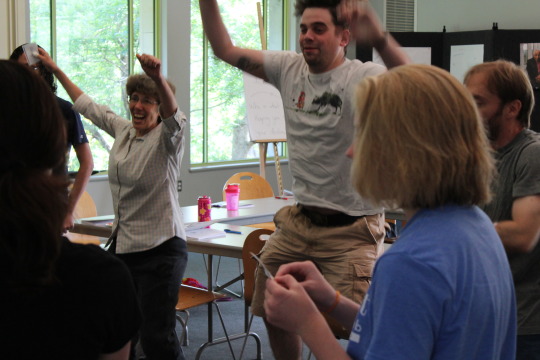
“That’s not my name!”

